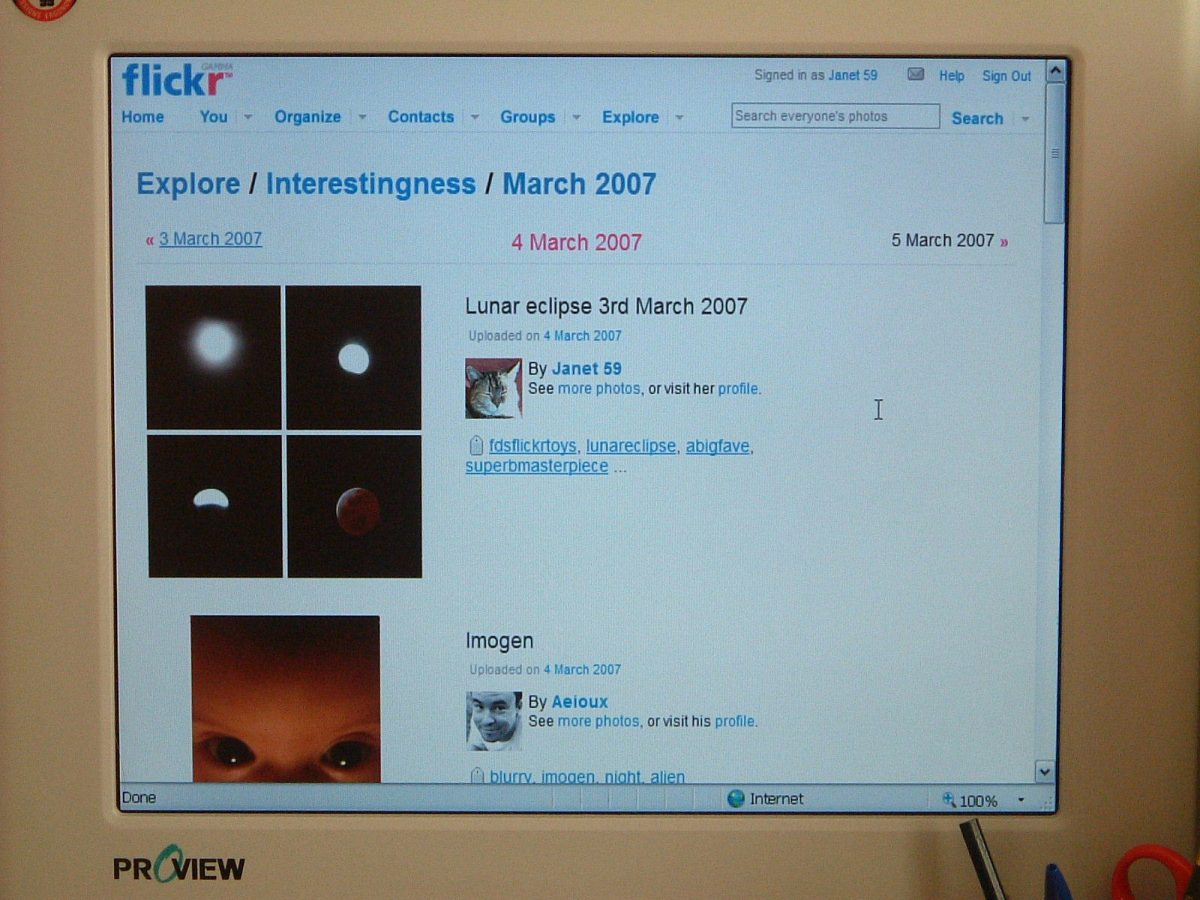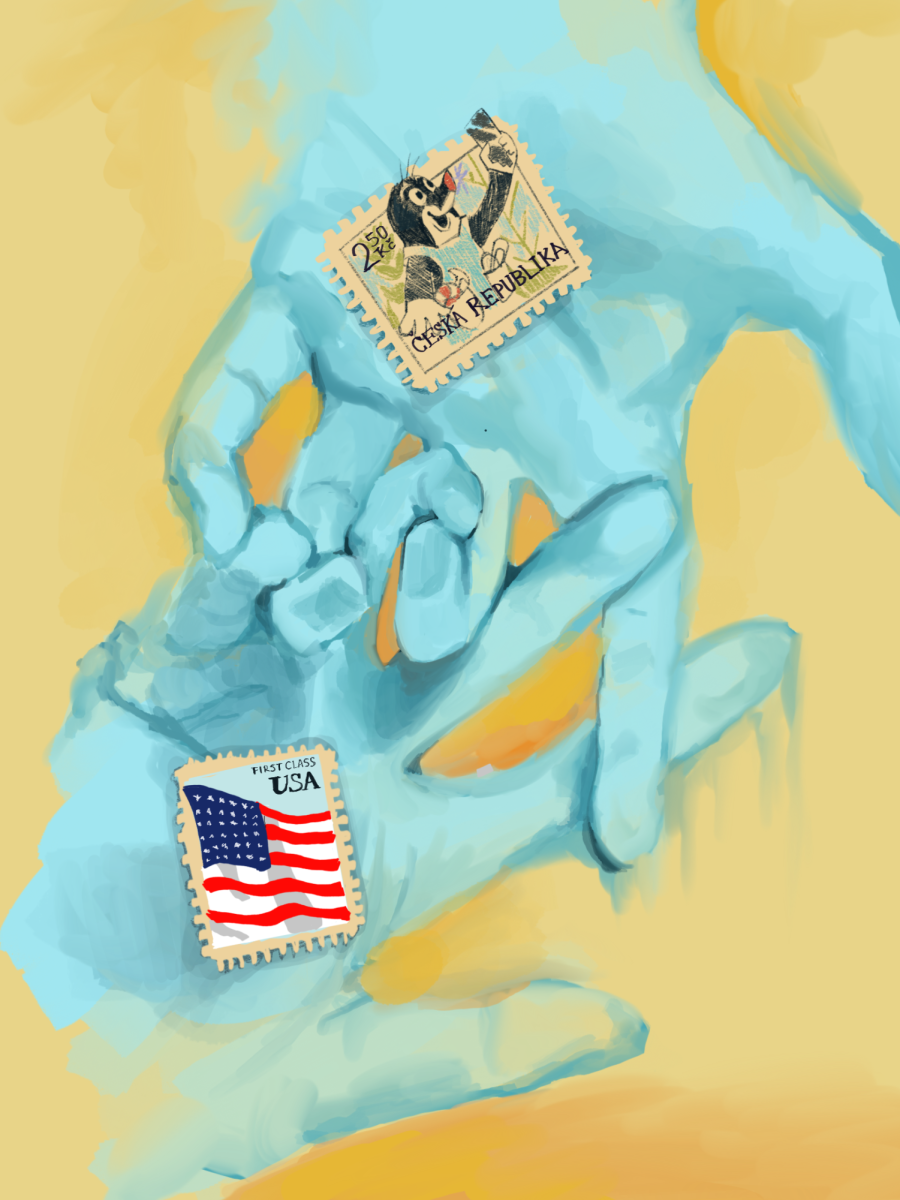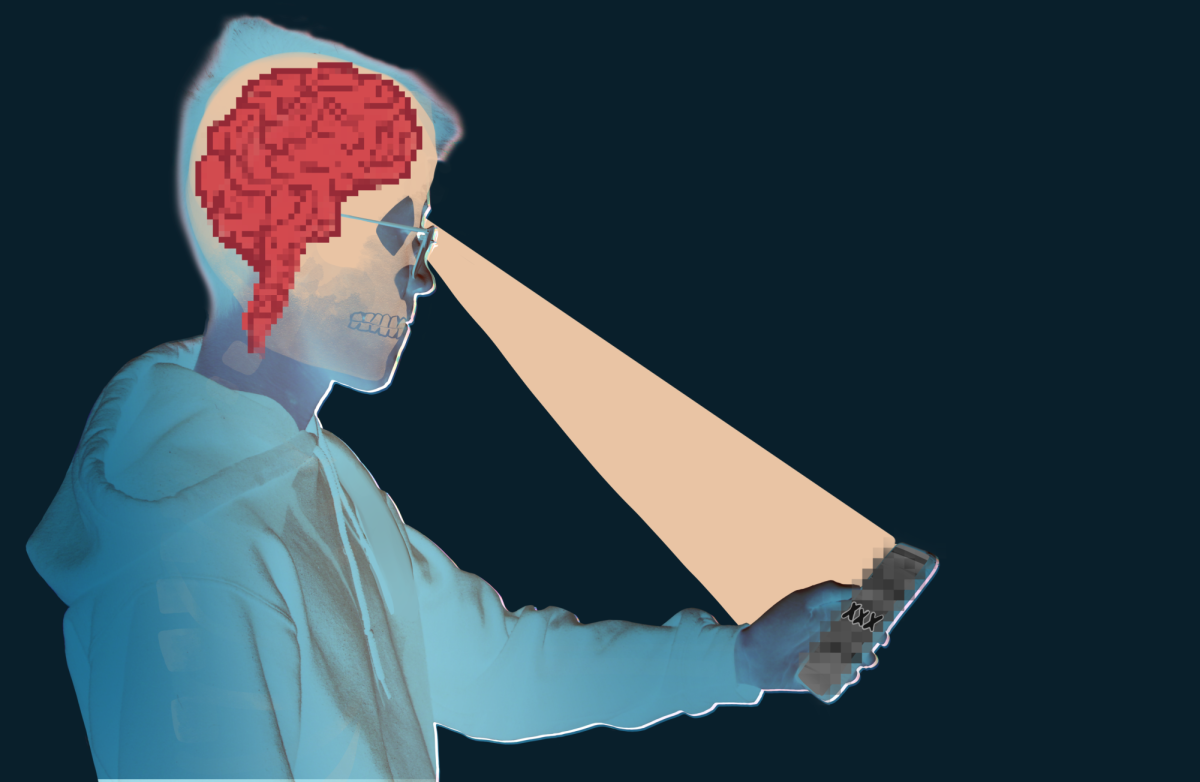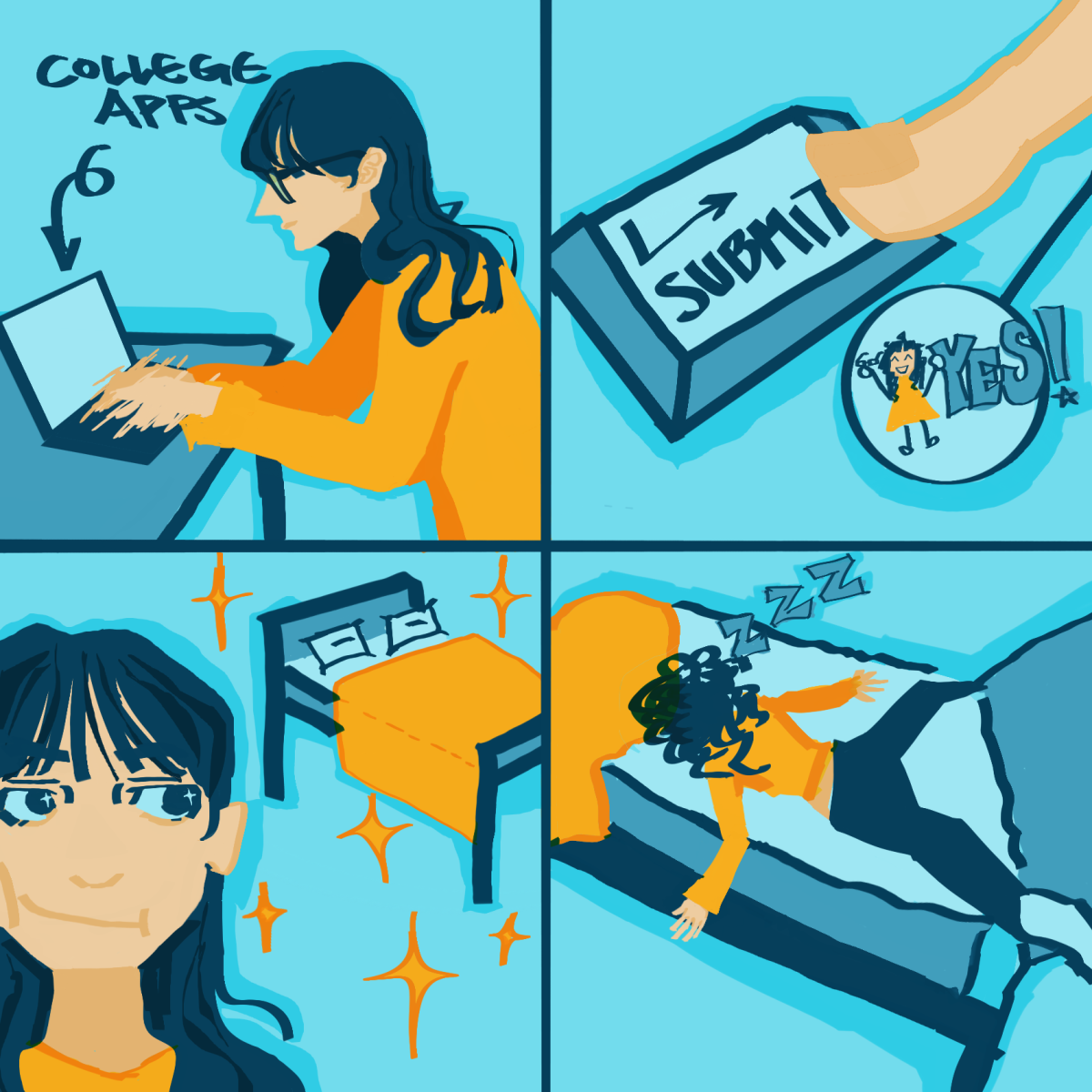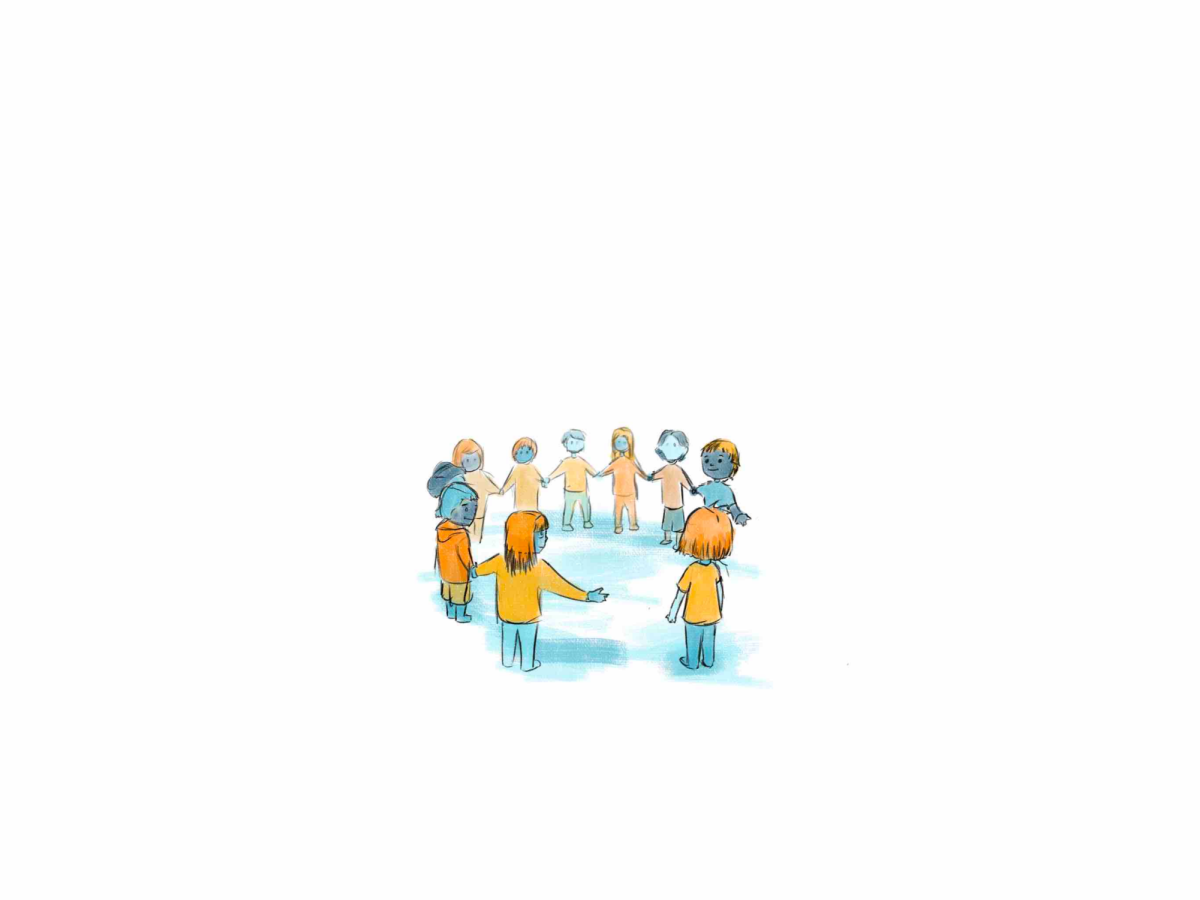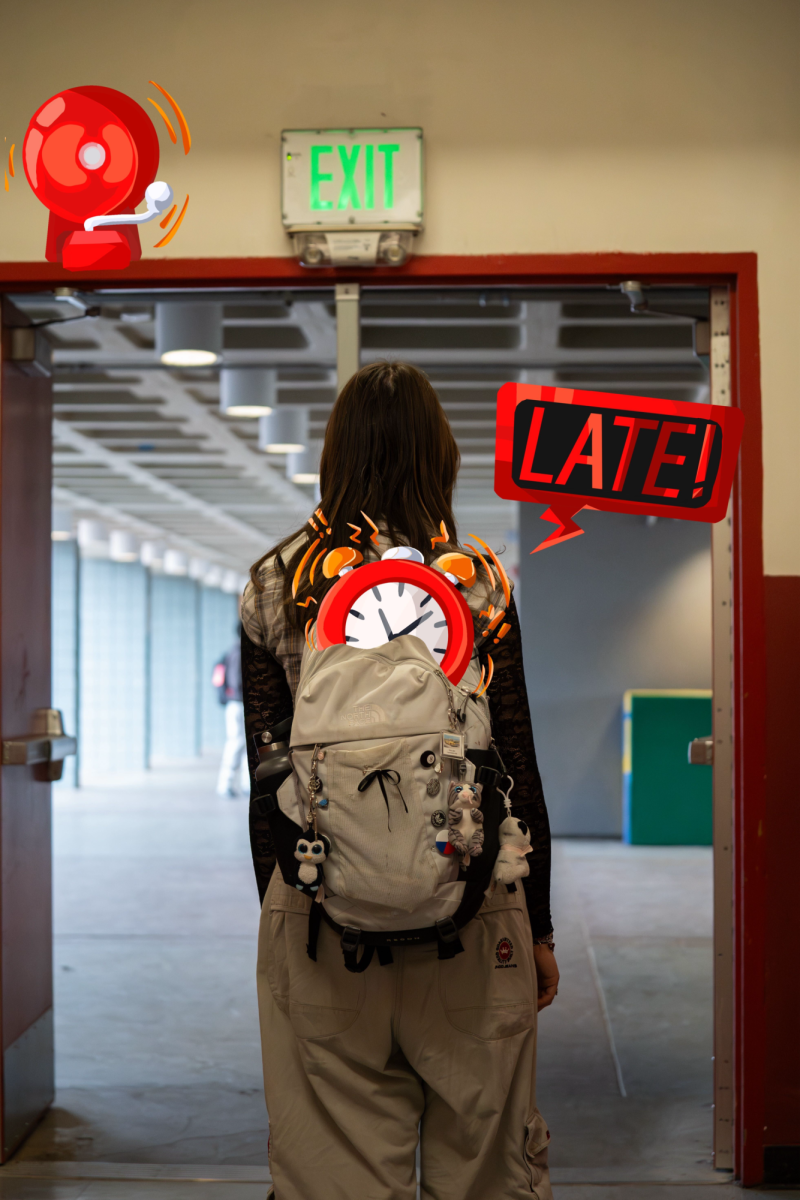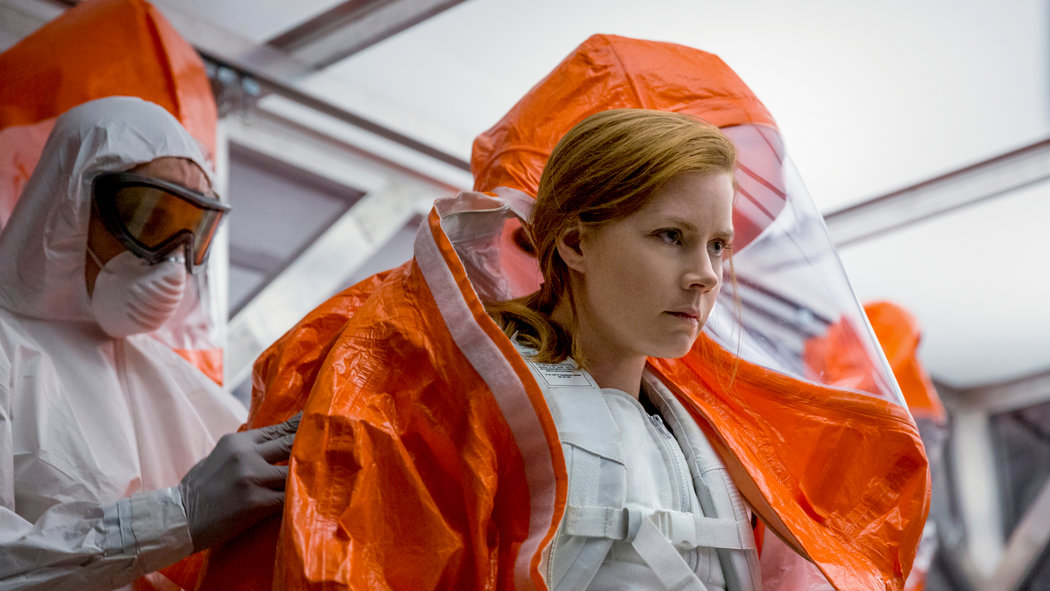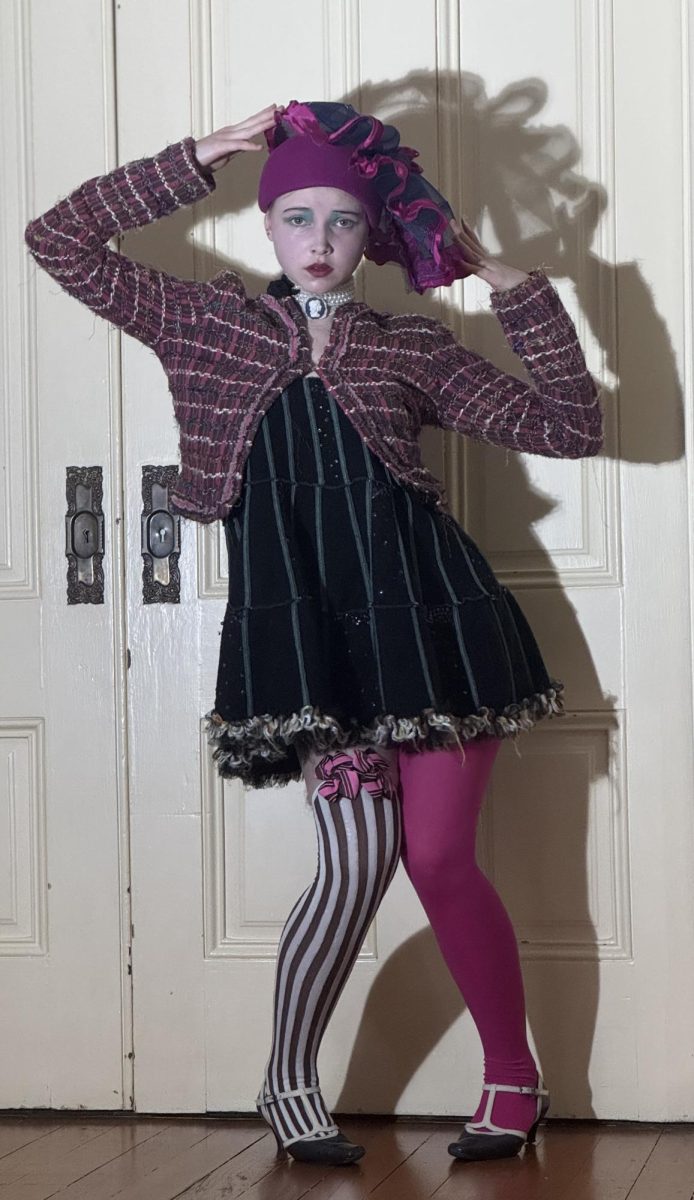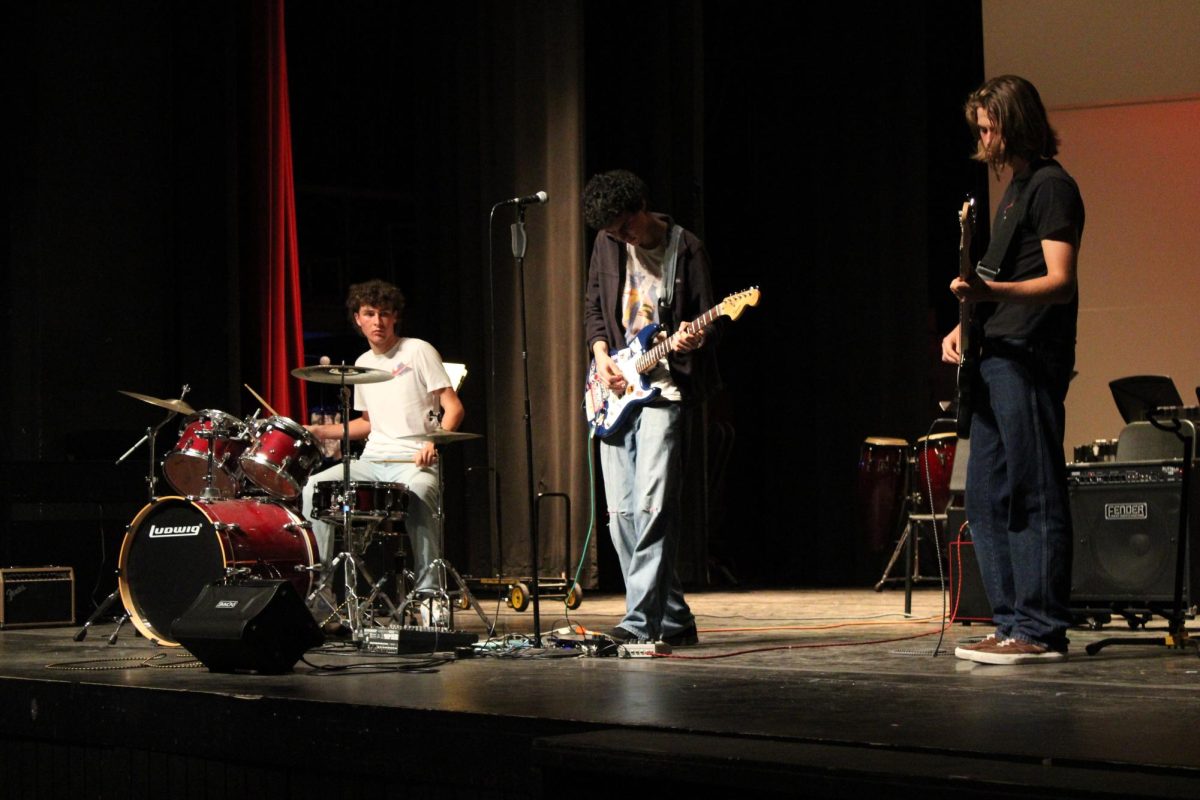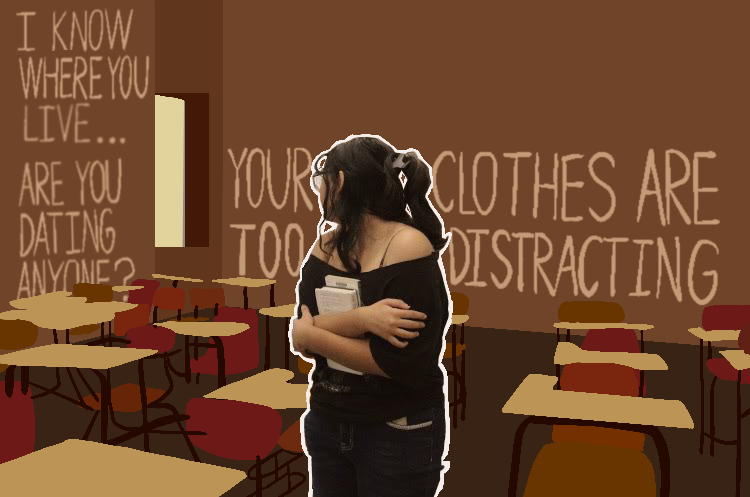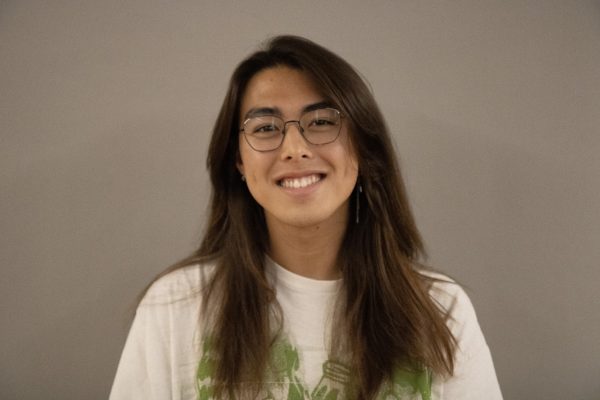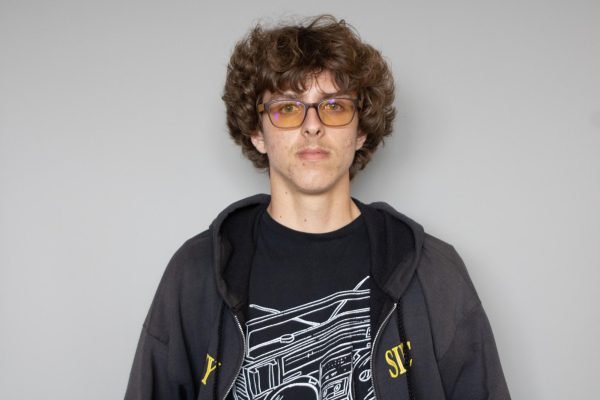Senior Ayden Dijkgraaf had been working to distribute voting resources for around a year, but it wasn’t until his friend had an abortion that he began to recognize the impact that the upcoming election could have on the people he loved. After learning of the limits on abortion proposed by Project 2025, a political initiative by the Heritage Foundation that is frequently associated with presidential candidate Donald Trump, Dijkgraaf knew it was important to vote to protect the abortion rights that his friend had exercised. Now, Dijkgraaf feels personally invested in his position as a poll worker, and he encourages other students to get involved with the election.
Dijkgraaf is one of many Lowell students with personal stakes in the upcoming election.
As the 2024 presidential election draws near, many Lowell students are worried about how they and their loved ones will be impacted by its results. According to a 2024 survey by The Lowell, about 70 percent of students believe that this election is more important than previous ones. However, some Lowell students are more engaged than others, depending on what is at stake for them in the election. Some students are advocating for their candidate of choice each day, while others are less informed about the election and its potential outcomes.
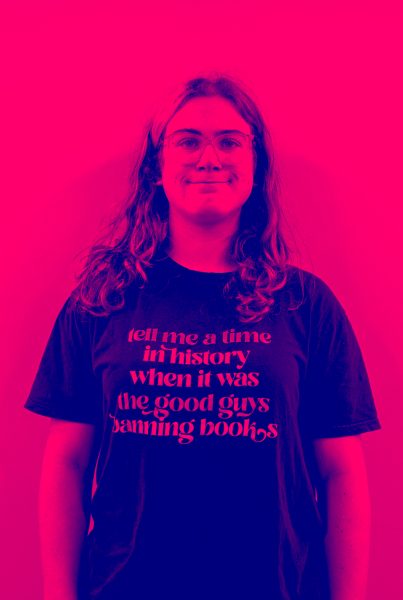
To many of these students, the consequences of a second Trump presidency loom large over this election. History teacher Lauretta Komlos, who has taught during three different election years, sees Trump’s presidency as a major turning point in the political involvement of students. “Some of the actions that Donald Trump took at the very beginning of his administration really seemed to lead to student engagement,” Komlos said. After Trump was elected, students began asking her questions about limits to his power, which never happened during the Obama administration. She didn’t always know the answers to their questions. “He was constantly testing the rules,” she said.
A desire to avoid a Trump presidency has caused students like Dijkgraaf, who leans Republican, to vote for Democratic candidate Kamala Harris in the upcoming election. Dijkgraaf sees Trump as too extreme of a Republican, and he has views that directly conflict with the former president’s. “What’s at stake is women’s rights, the environment, and international relations,” Dijkgraaf said. He is also worried that a Trump presidency could be a bad influence on his generation. “When we grow up and we become fathers and mothers, we want to instill good values like compassion, care, and thoughtfulness in our kids,” he said. “We don’t want snooty, rude, sexist, entitled children.”
Queer students, like senior Gray Gardiner, see a second Trump presidency as a direct threat to their way of life. Gardiner, who identifies as transgender and genderqueer and uses the pronouns ze/hir, feels that politics as a whole have become a fight for hir right to openly exist, and that Project 2025 is one of the biggest active threats to hir existing the way ze chooses to. Sophomore Cecelia Mills is similarly concerned that a Trump presidency would mean the suppression of her identity as a transgender woman. “As a queer person, I’m very concerned about the fact that Donald Trump has stated again and again, directly or indirectly, that he does not care about queer rights, that he wants to remove queer people from our country, and [that] his followers have also expressed opinions like that,” Mills said. Mills went as far as to say that she would not feel safe as a trans person in America under a second Trump presidency. “If Donald Trump wins, I would likely have to either leave the country, or find some [other] way to ensure my personal safety and my right to continue existing as a queer trans person.”
In the event of a Harris win, Gardiner sees this election as an opportunity to help queer people in states that aren’t as progressive as California. Ze referred to hir cousin, who is also trans, but lives in a state that places more restrictions on the lives of transgender people. “He doesn’t have the same ability to go play the sports he wants to play, and all of these [other] things,” ze said. “I just feel so bad for him and so many others like him.” Gardiner believes that this election is a unique chance to make a major difference in this country by keeping Democrats in power, which can benefit those like hir cousin who are impacted by state laws.
Some students, such as senior Amy Chandonia, don’t support either of the main presidential candidates. Though she leans towards the Democratic party, Chandonia, who is not old enough to vote, supports a third party candidate this election. A prominent reason for this is Harris’s unwavering support for Israel in the Israel-Hamas war. “[Harris is] basically supporting genocide, and if she is elected, that’s something we’re gonna have to deal with and face the consequences of,’’ she said. Chandonia is referring to the deaths of over 40,000 Palestinians by Israeli attacks, a number which, according to a statement by Volker Türk, UN High Commissioner for Human Rights, is made up mostly of women and children. Many of Lowell’s students align themselves with the Democratic party. A 2024 survey by The Lowell found that out of the students who had aligned themselves with a political party, about 84 percent identified as a Democrat. Because of this trend, Chandonia is worried about why students are supporting Harris. “I feel like there’s not enough attention being drawn onto the issues with her campaign and her plans for the future. [Lowell students] just blindly throw their support at her because she’s a Democrat,” she said.
Senior Helena Awwad supports Harris because she sees her as the lesser of two evils, although she does not feel that Harris is the best fit for president. Awwad, who is Palestinian, also takes issue with Harris’s support for Israel. “I’ve spoken to a lot of other Arabs about this, and I think the consensus that I’ve come to, and a lot of others have come to, is that we’re kind of left at this point with two options,” Awwad said. “One option is a felon who is racist and homophobic and will set us back 100 years. And then we have Kamala, who’s also problematic in many ways. However, I think we’ve seen a little bit more willingness to, I don’t want to say support Palestine, but kind of ease what’s going on.” However, Awwad believes that Harris’s limited consideration for Palestine is likely performative, and a ploy to gain votes from those sympathizing with the Palestinian people. “It always begins with the same, ‘I will always support Israel, and Israel’s right to defend itself,’ and ‘what happened on October 7 was terrible,’ and this whole preemptive measure so that people aren’t offended before saying the most basic human response to what’s happening.”
Other students, such as senior Sophie Cullen, find themselves getting their first thorough look at politics in their senior year in classes such as AP American Government and American Democracy. “I feel like [AP American Government] made me pay more attention to [politics], but previously, my parents never really talked about it, so it just never got on my radar,” Cullen said. Cullen doesn’t use time outside of class to learn about the election, but believes it’s important to have a basic understanding of current political events in America.
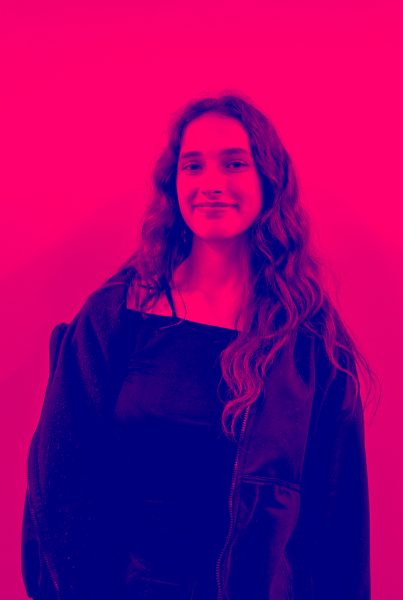
In order to keep students informed, teachers such as history teacher Michael Ungar attempt to work current events into their curriculums. He believes it’s essential for his students to be involved with American politics, as he thinks politics will shape his students’ lives. “It’s going to be your world before we know it, and if you’re not engaged with politics and trying to influence politics, then you get politics that somebody else wants and not you,” he said. In her American Democracy class, Komlos puts a similar amount of effort into getting her students involved in politics. During the most recent presidential debate, Komlos assigned her American Democracy students worksheets to fill out while watching, in an attempt to keep them updated on the current state of the presidential race. “If I get them motivated to be registered, be engaged, and vote in one election, they are far more likely to continue to be engaged voters throughout the rest of their lives,” she said.
Students have also devoted their efforts to getting their peers involved in the election process. Junior Sabina Kaharva, a junior varsity captain for Lowell’s Model UN team, works with the UN in Uzbekistan to teach women how to vote. In her own Uzbek community center, she has been promoting voting, as well as Harris, to young voters. Kaharva believes that keeping Trump out of office in this election is crucial to American democracy. “We have a candidate who is out there who is ready to take on the situation that the US is in, and we have one who’s just trying to use past experiences and personal attacks to somehow regain his term,” she said.
Not all students at Lowell are heavily involved in this election, but much of the student body believes this election is an important one. Because of this, some students are vocal about the importance of getting involved, whether people feel the election impacts them or not. “Think about your friends, think about your family, if you think [the election is] not going to affect [your] situation,” Dijkgraaf said. “Think about yourself in someone else’s shoes, and ask yourself what you would want for them.” Other students echo this sentiment, saying that everyone is impacted by this election. “We are the future of this nation, and even if a lot of us can’t vote in this election, it is still very much important for us to be informed and involved,” Mills said.


